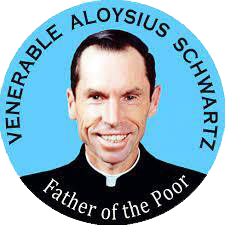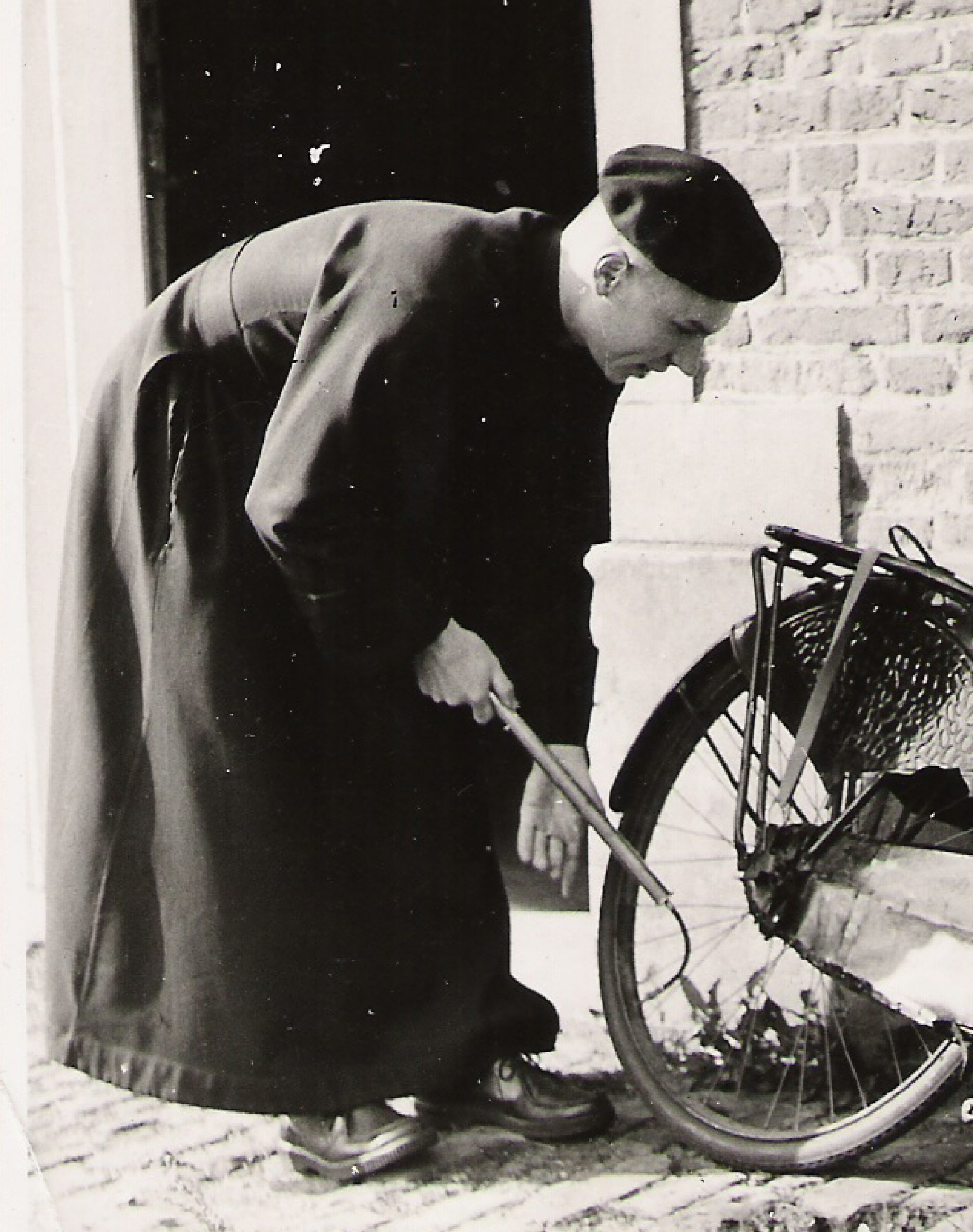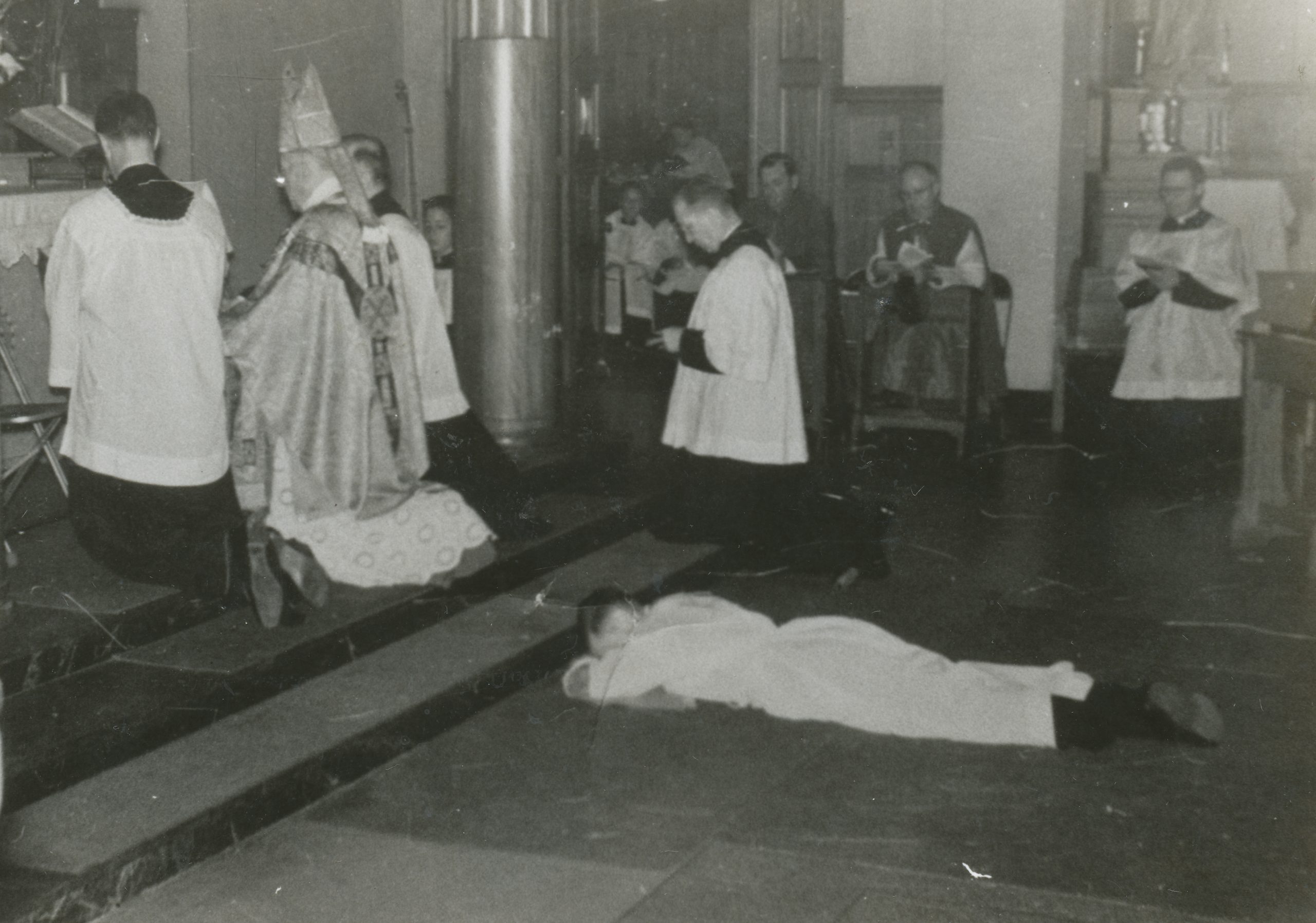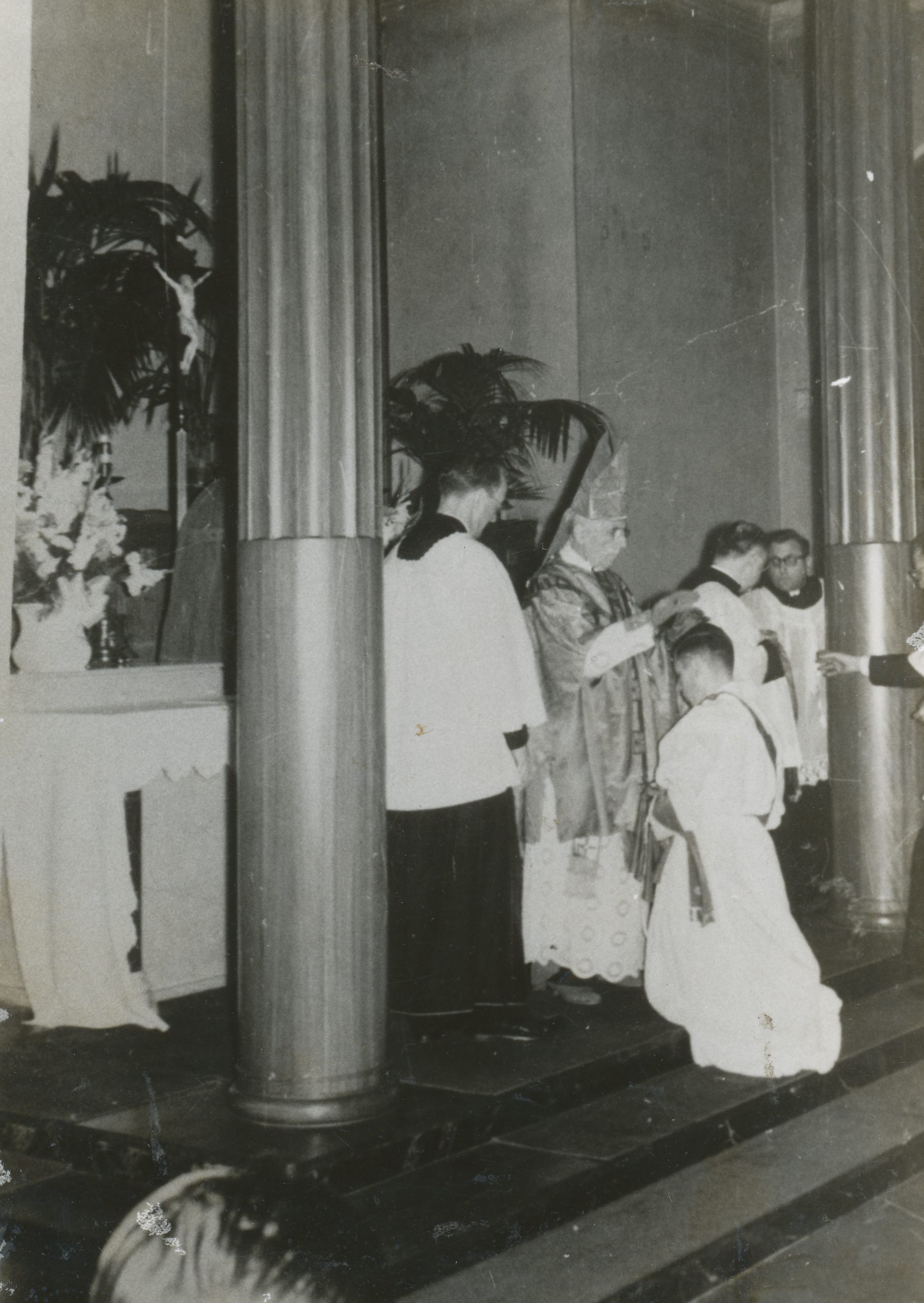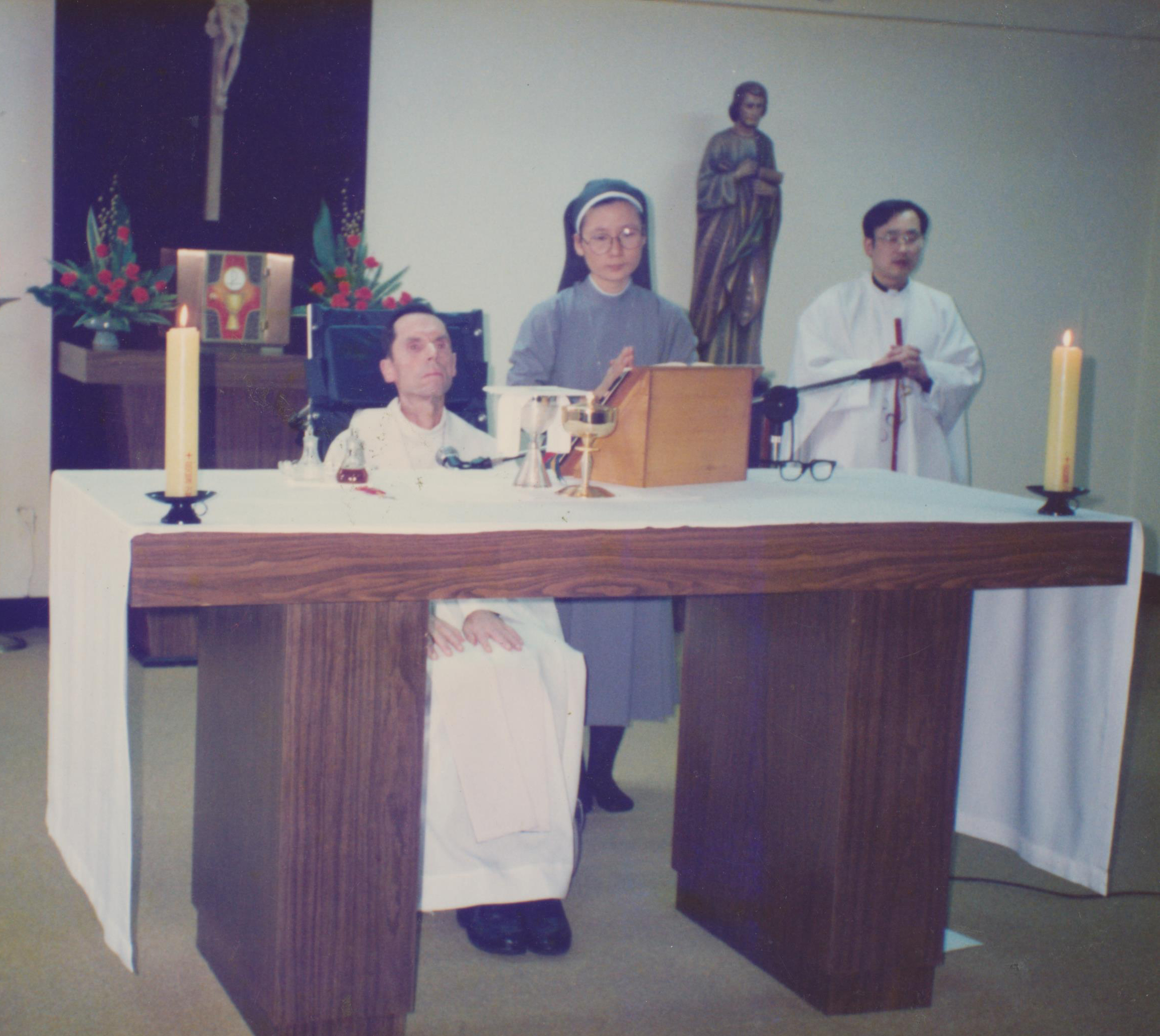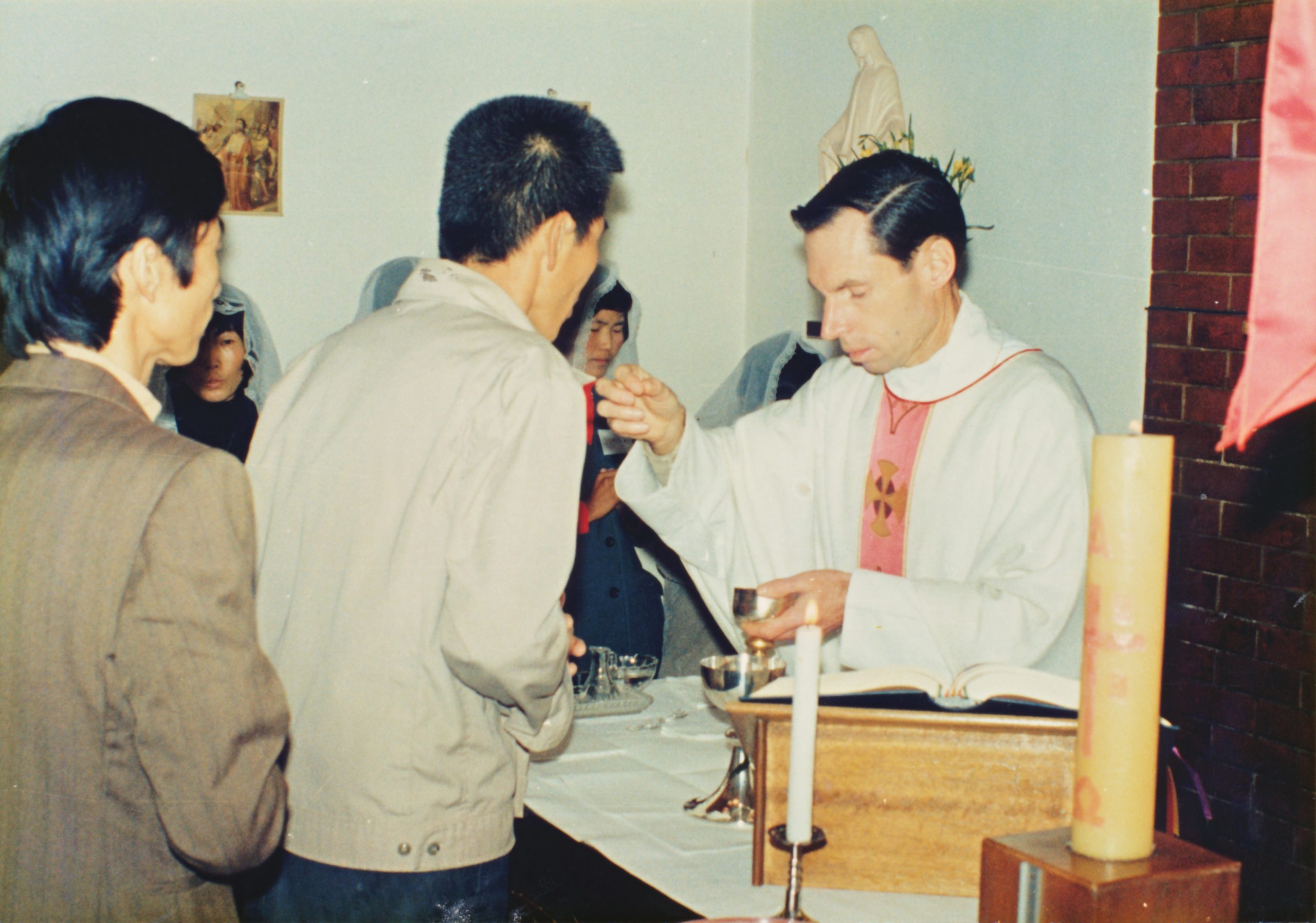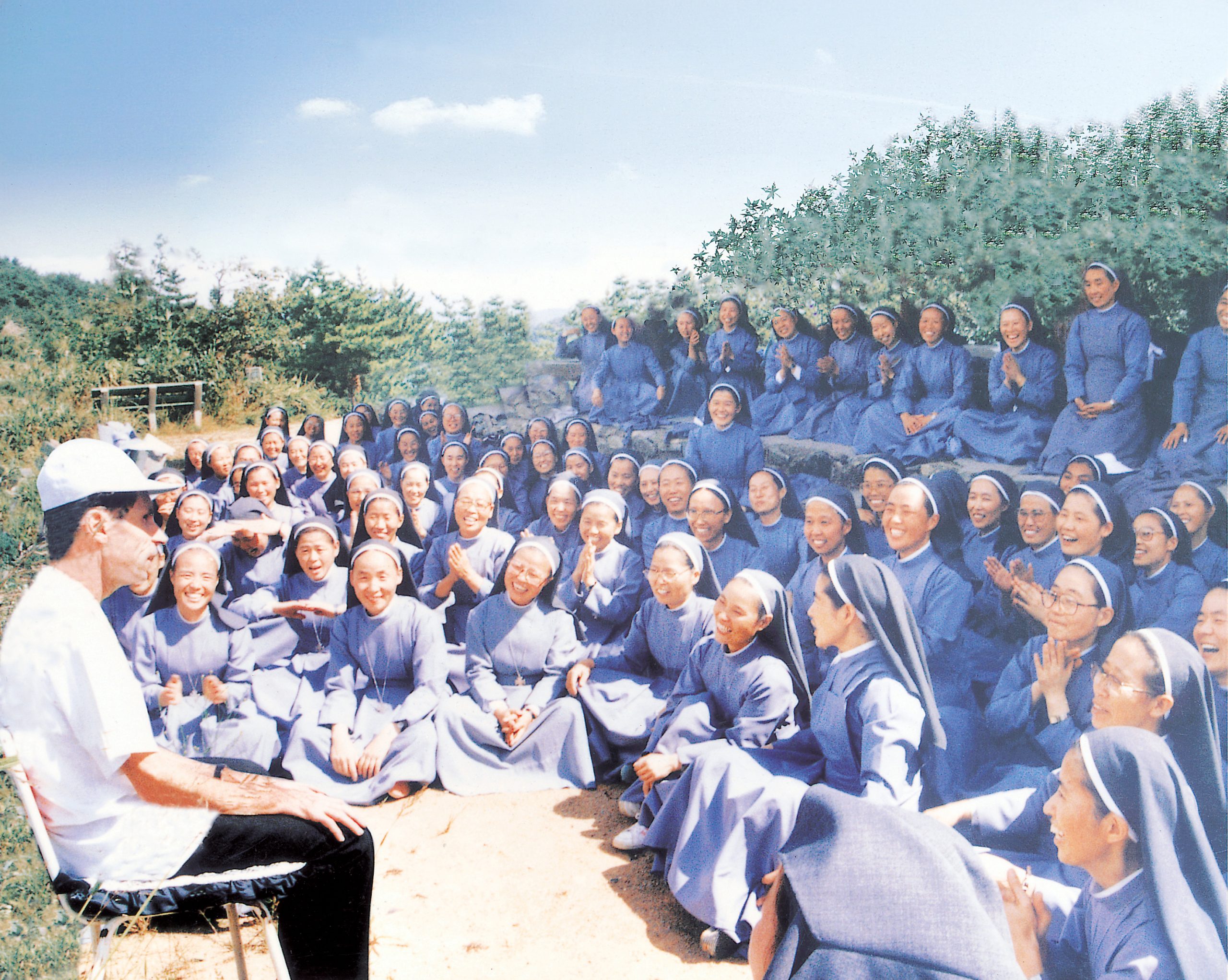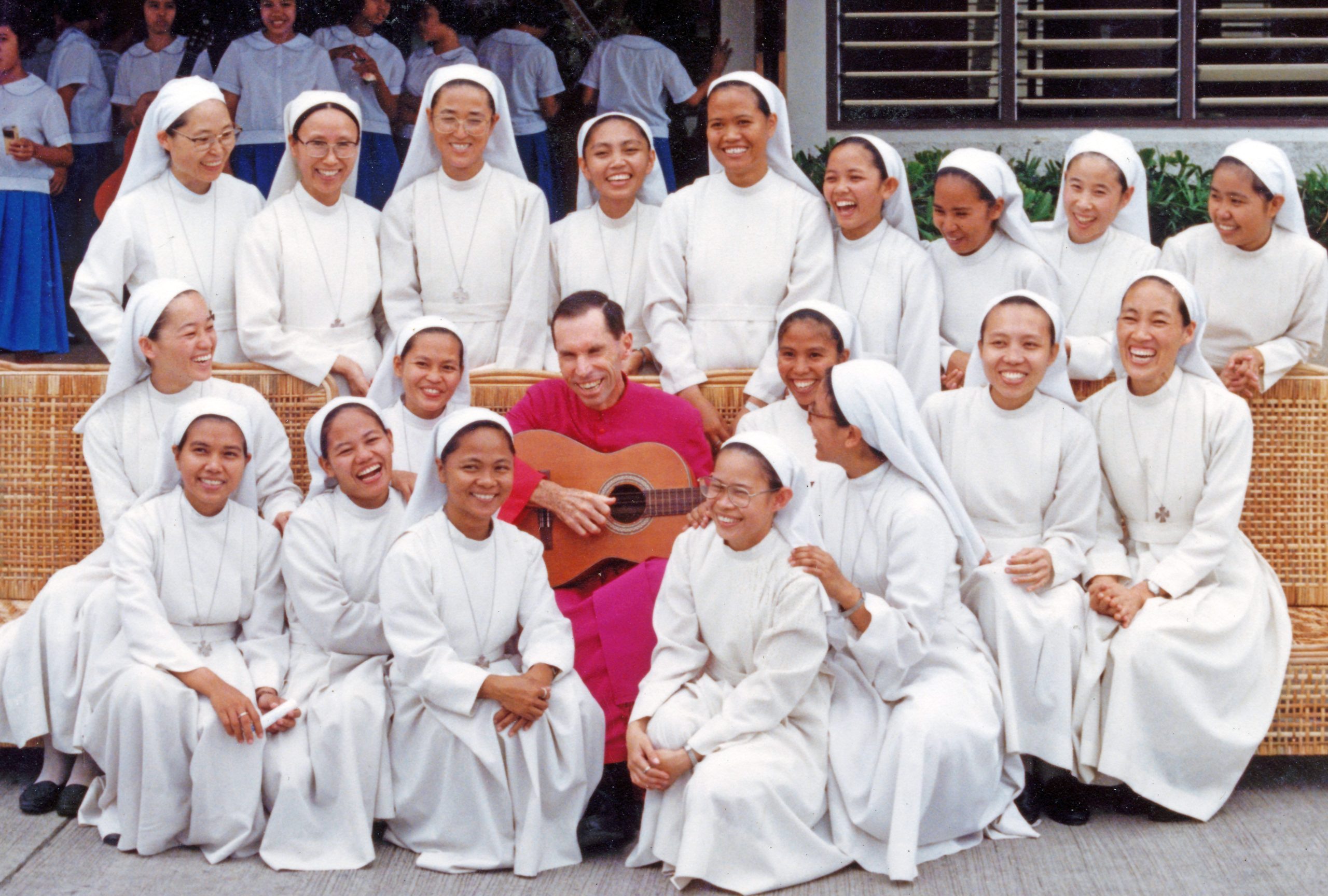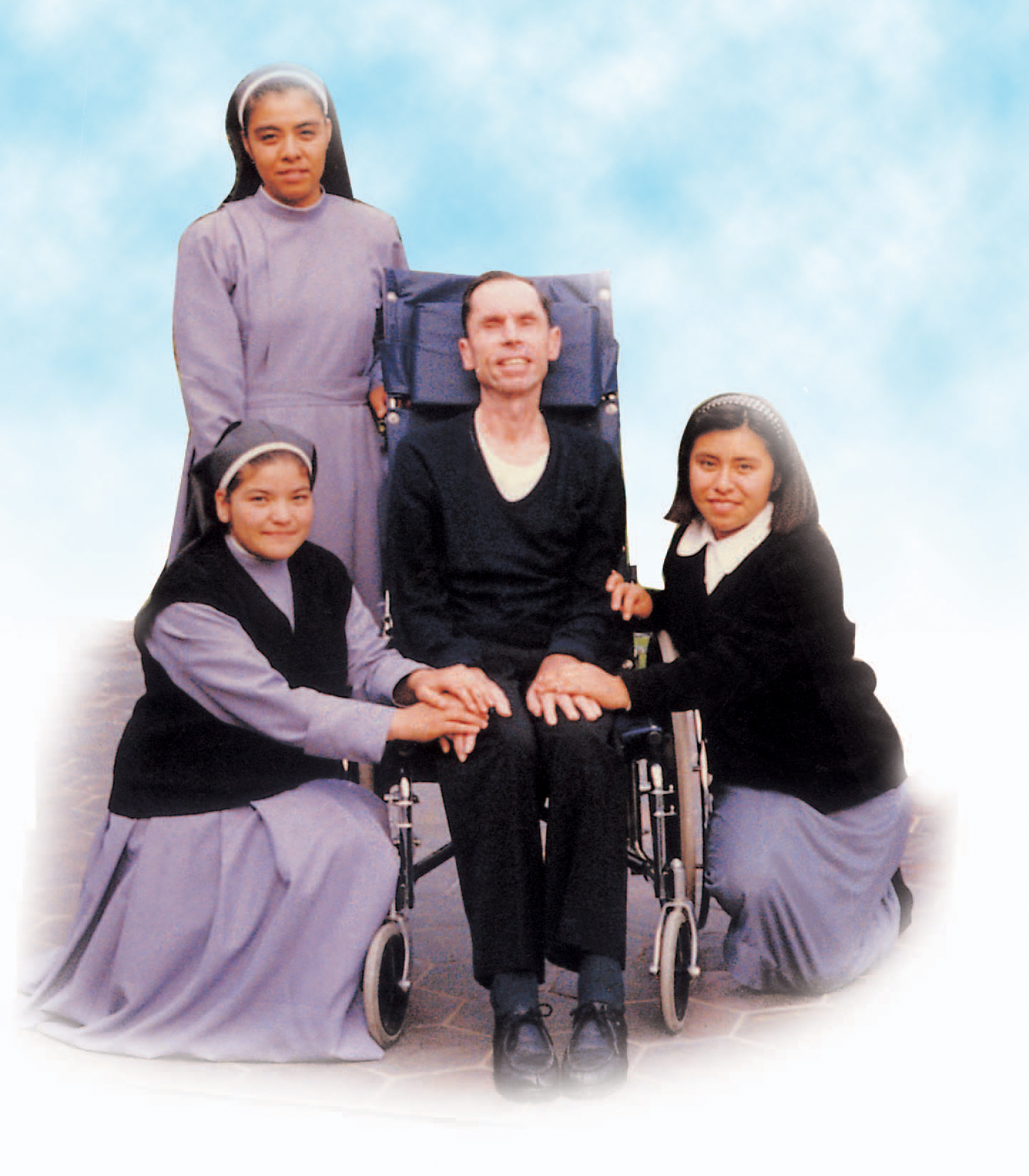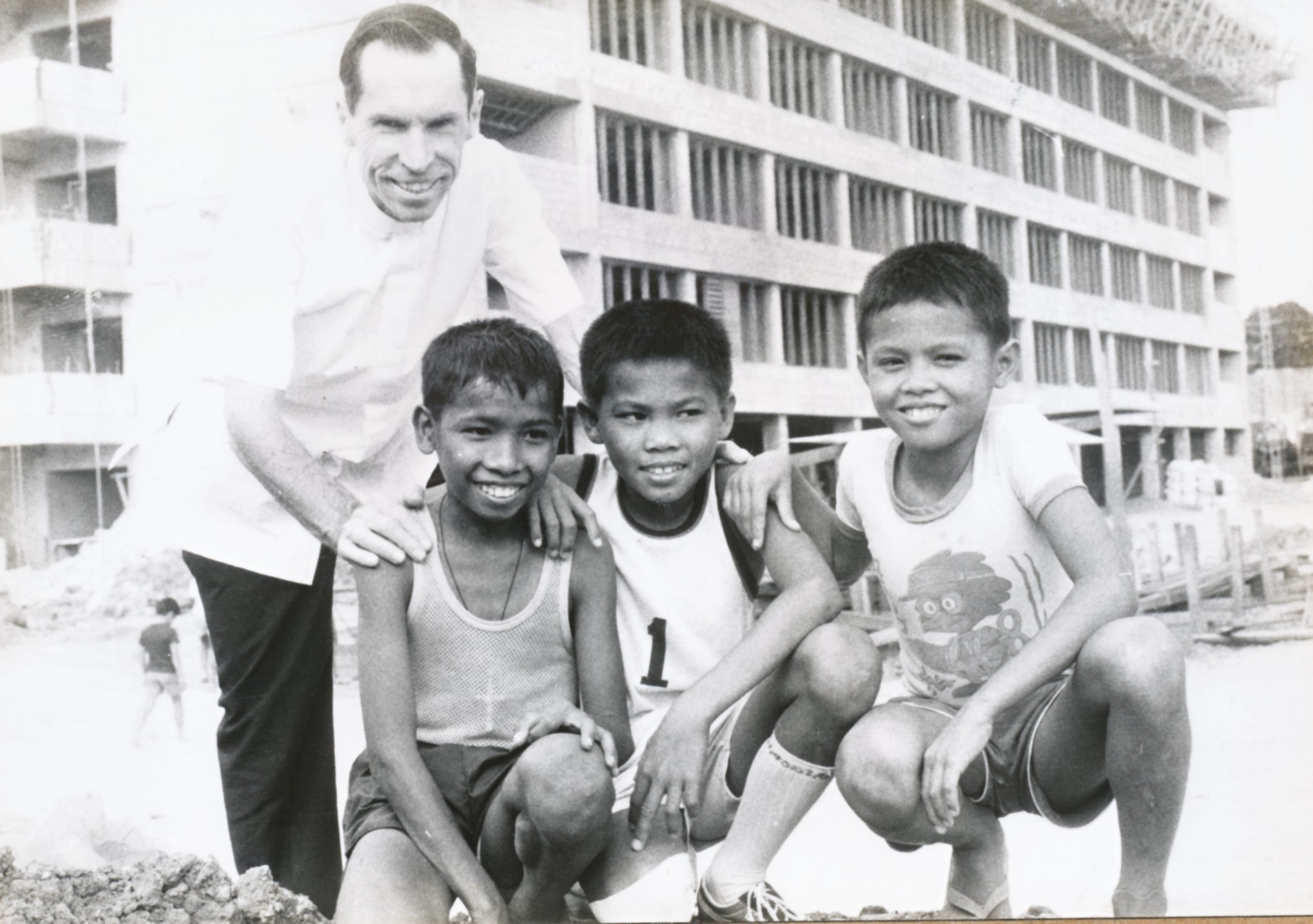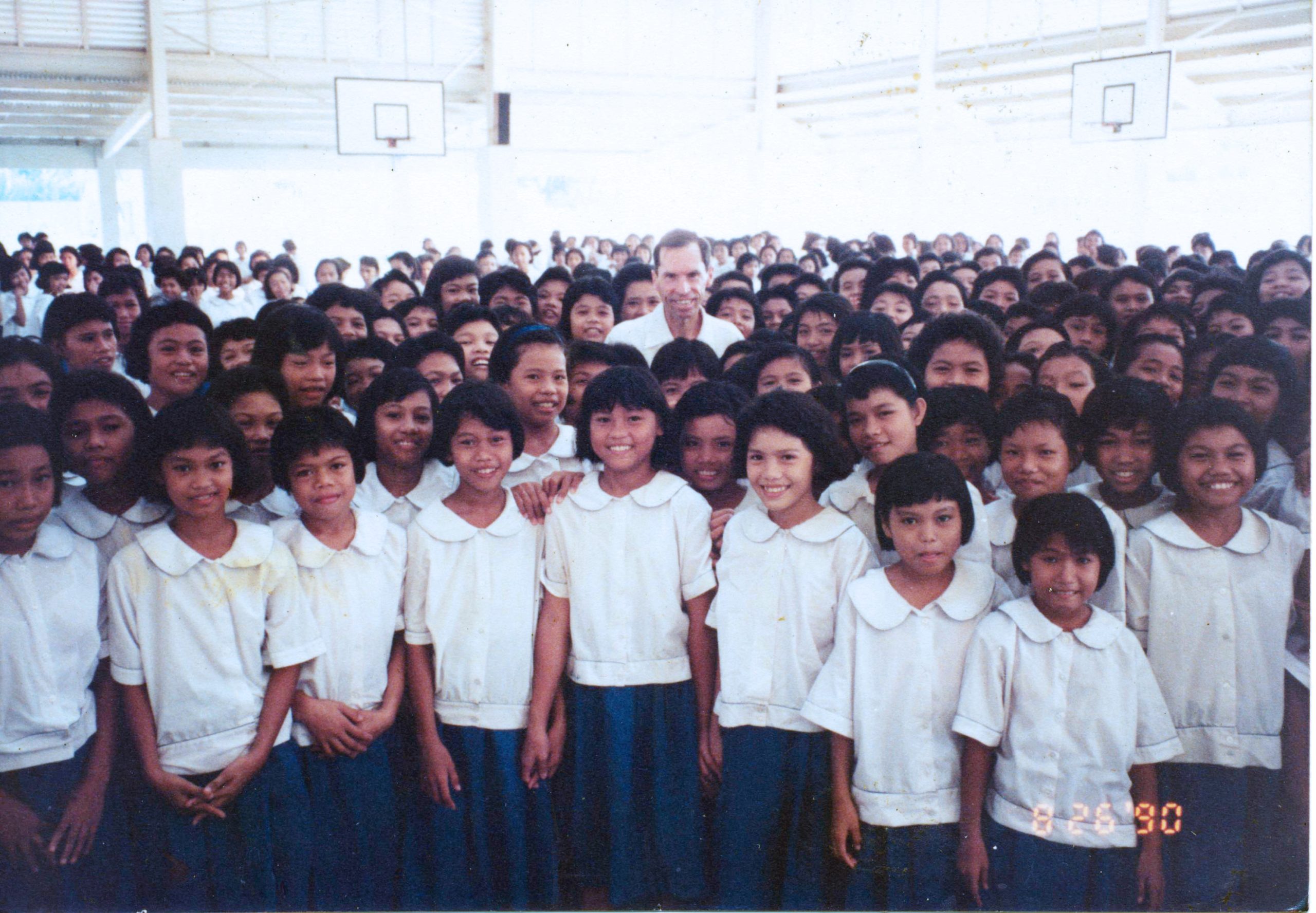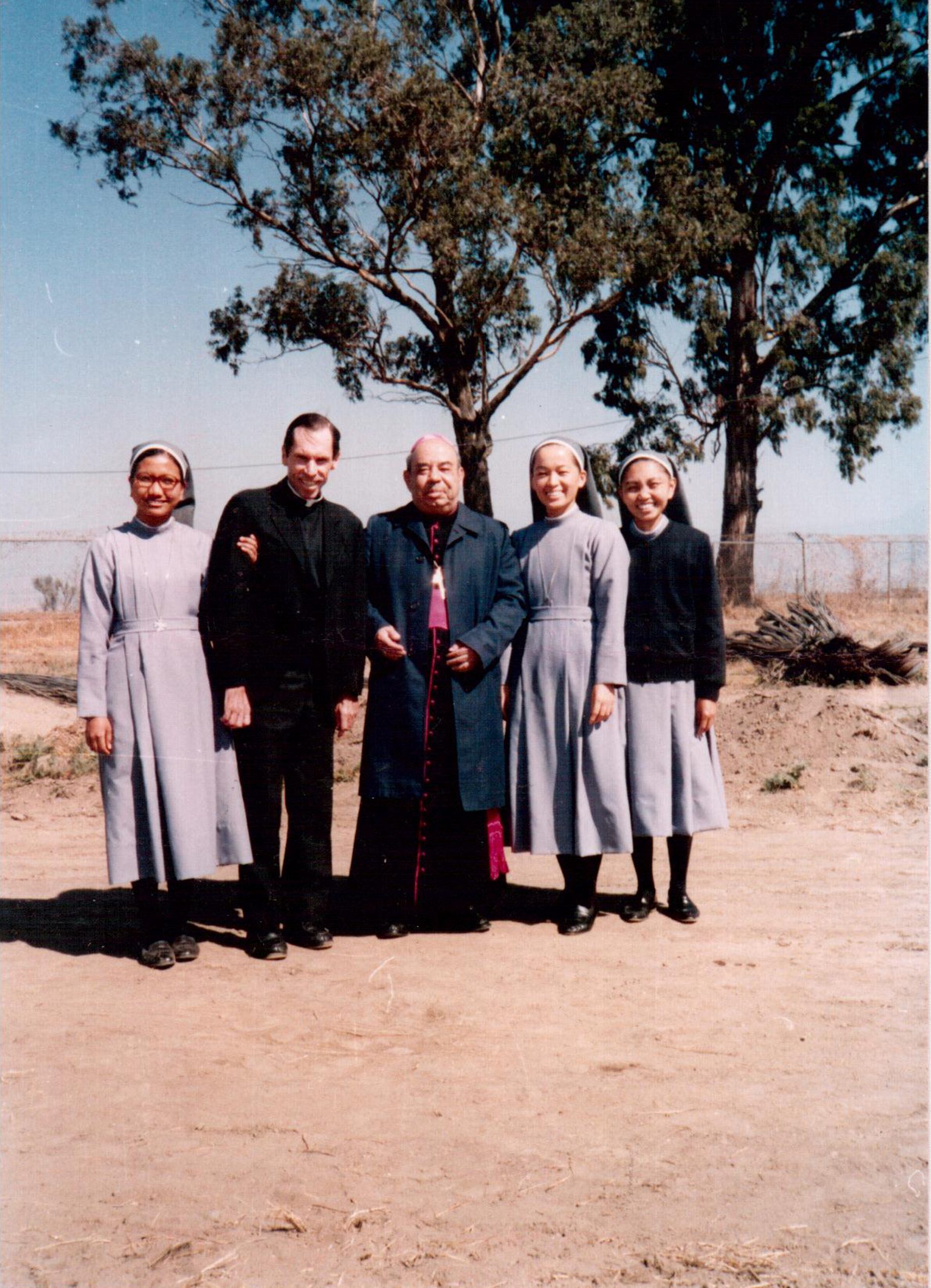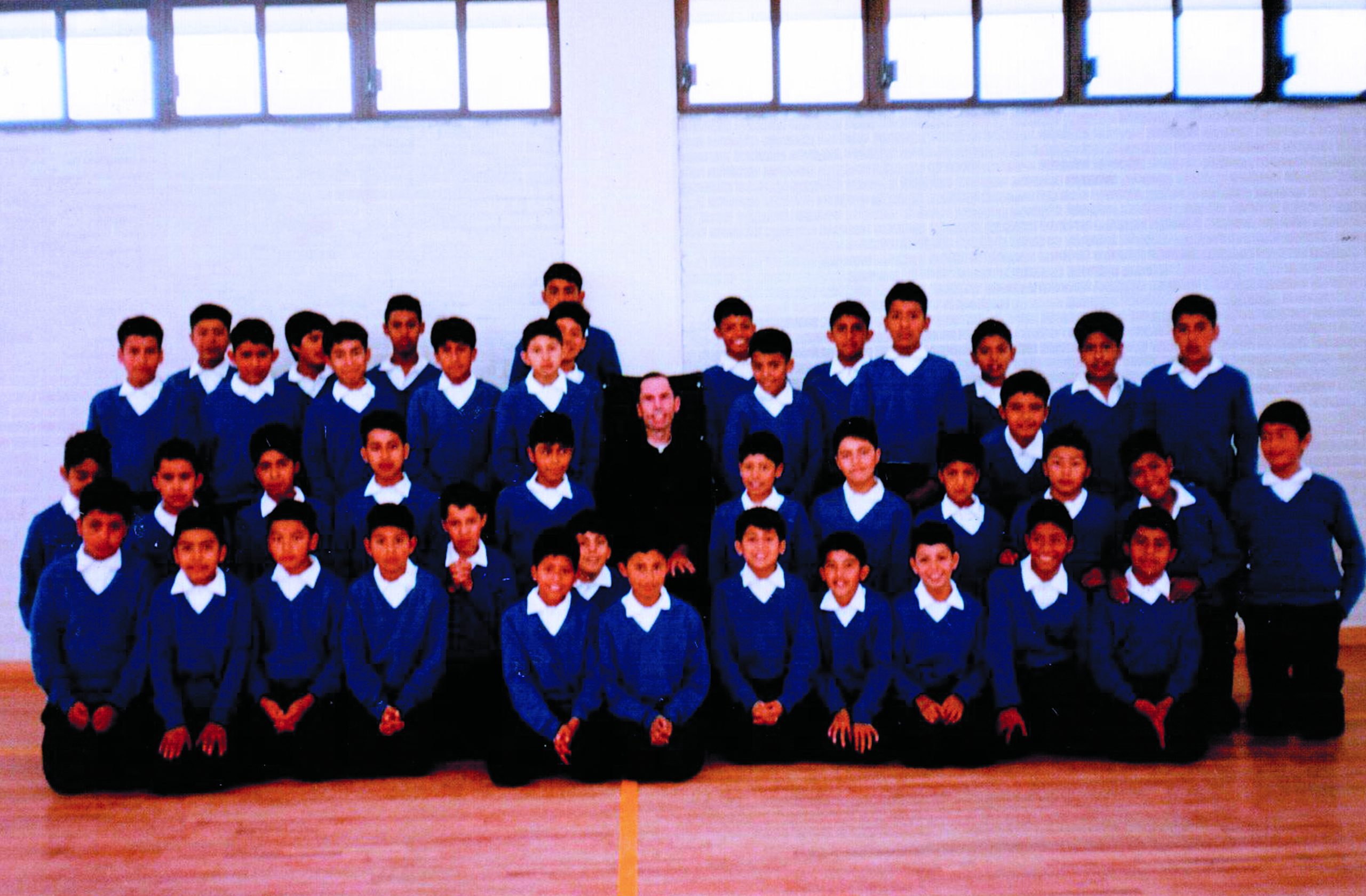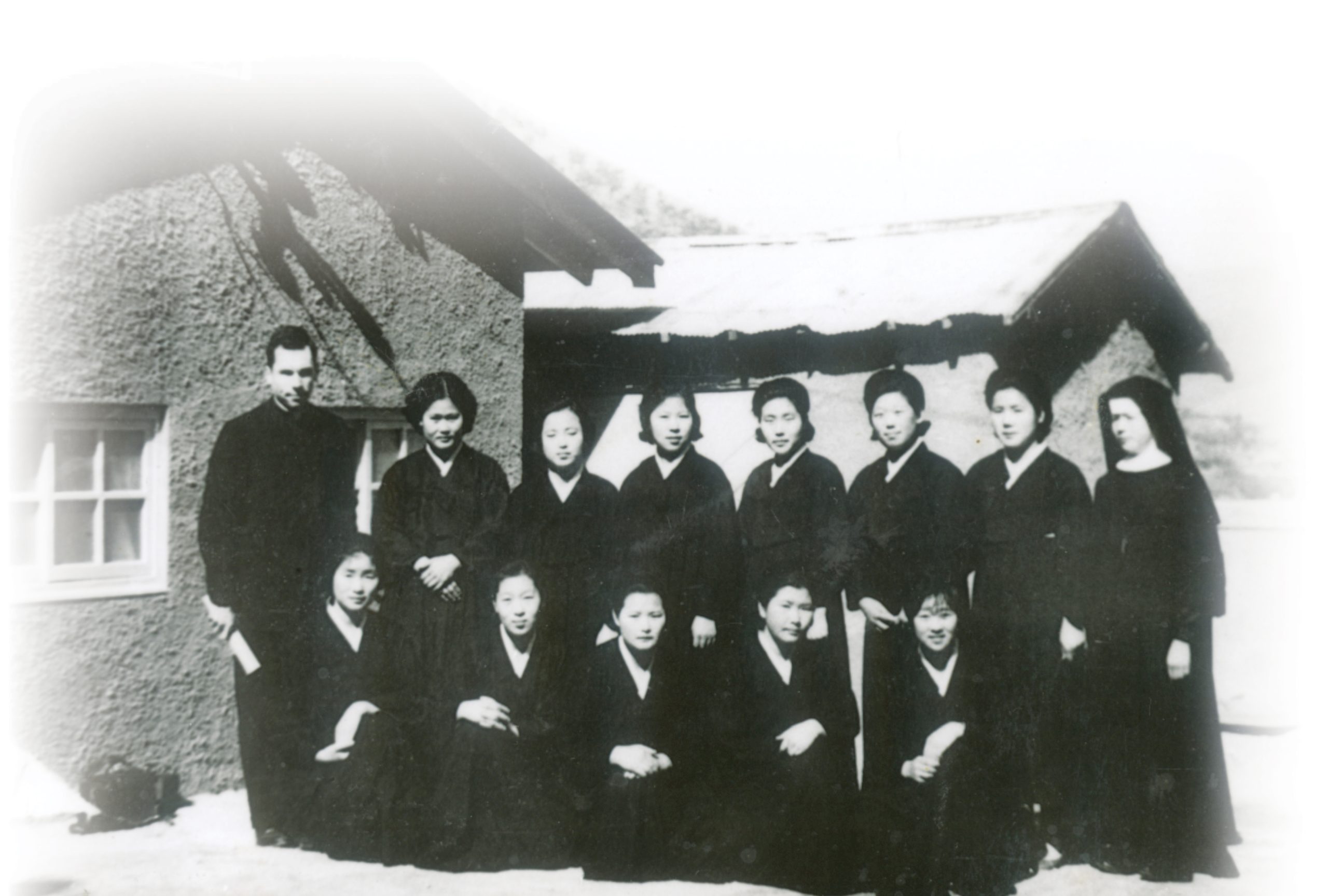



Venerable Aloysius Schwartz, known to most people simply as “Father Al” proved that spiritual maxim with his own life.
In 1964, facing the destitution of postwar Korea, Father Al established an order of women, the Sisters of Mary, to care for the many children without families, and in the following years, he built an orphanage, a full service hospital, the first Boystown program with more than 300 vagrant boys, and many other initiatives at the service of the poorest of the poor.
In 1985, he started Boystown and Girlstown in the Philippines to give free high quality education and spiritual formation to the children coming from very poor families. In 1989, he was diagnosed with Lou Gehrig’s Disease, a cross that bore with humility and love until he passed away in 1992. Since his death, his priestly work continued to bear fruit in Mexico, Guatemala, Brazil, Honduras and Tanzania.

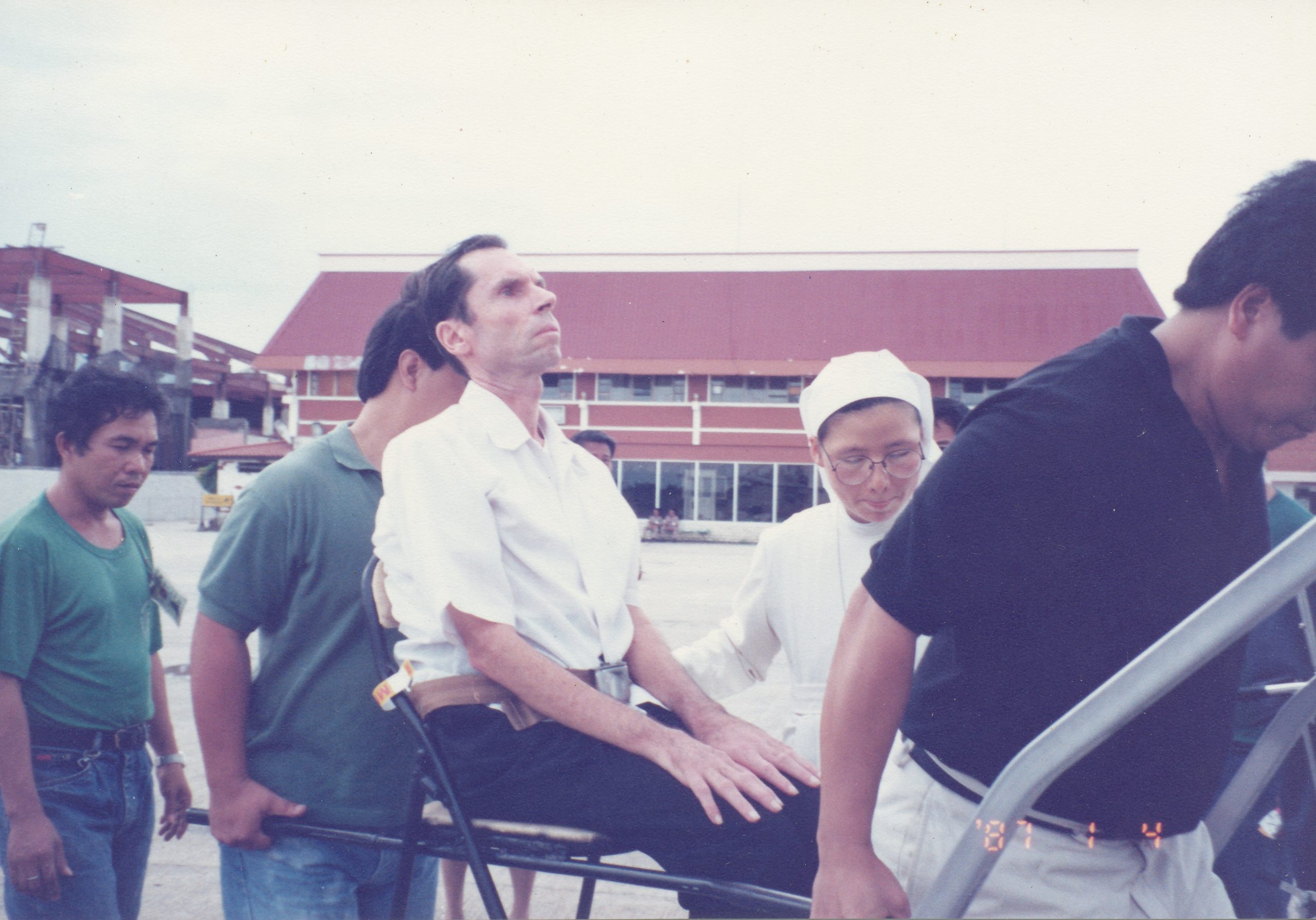
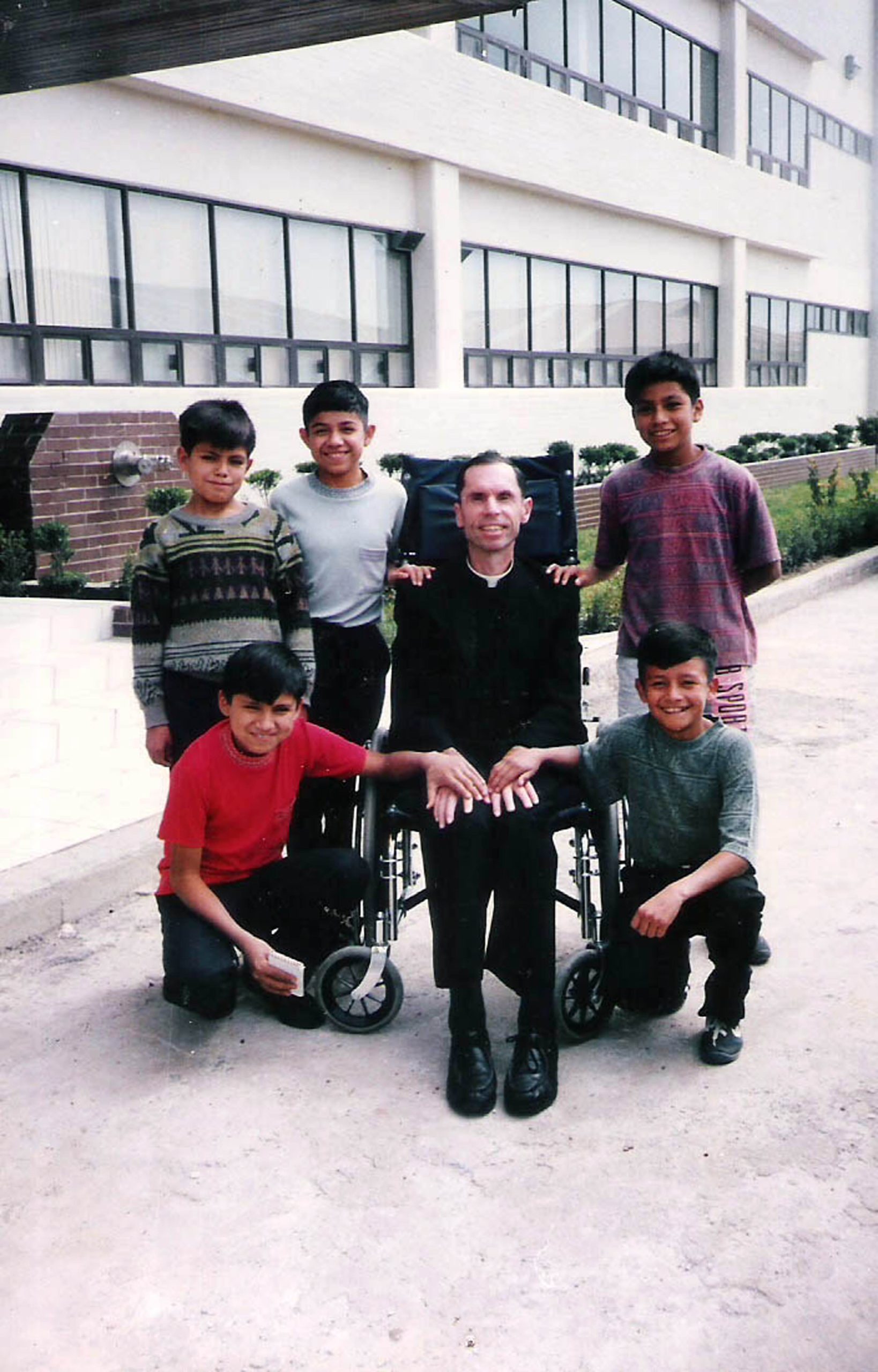

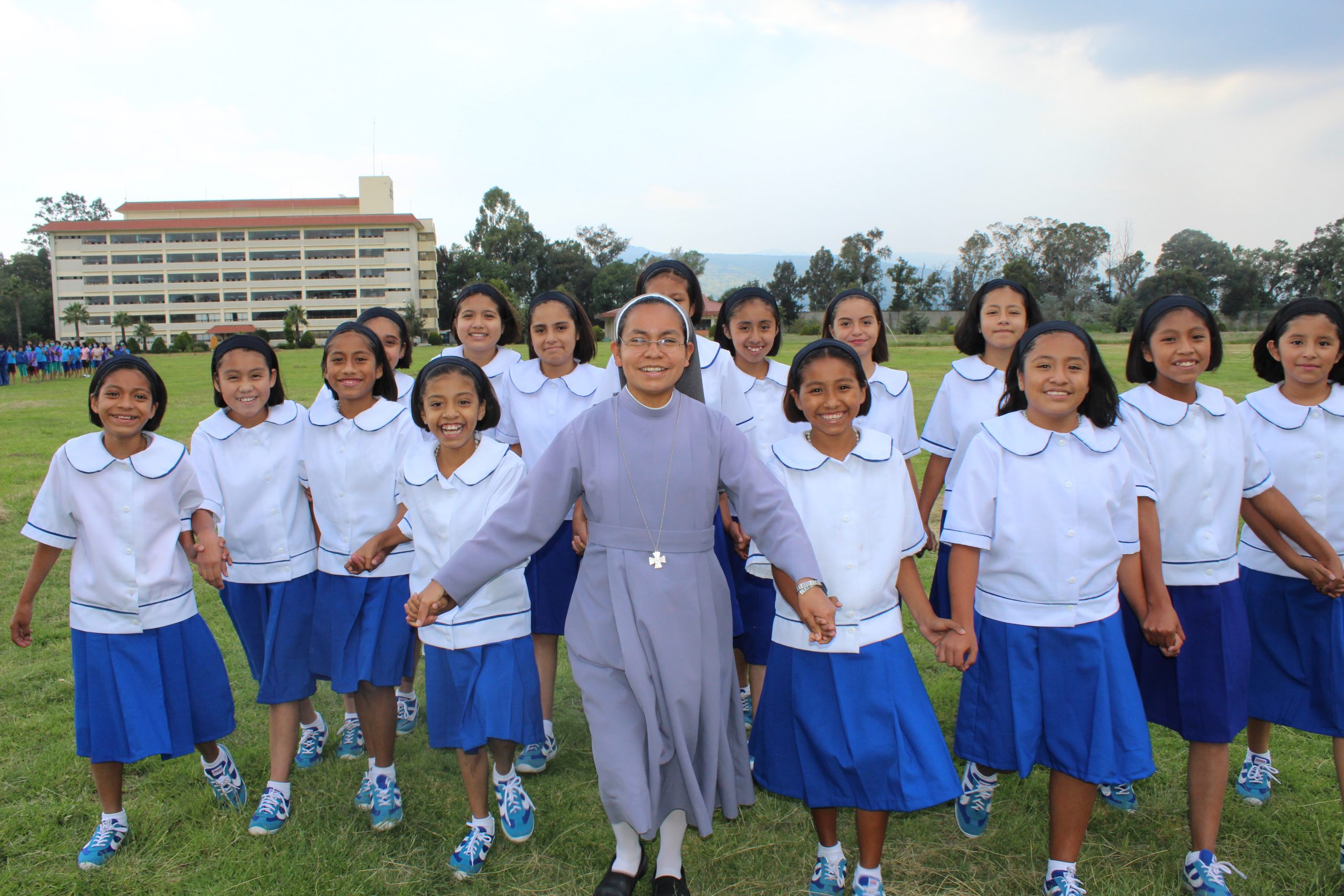
At present, there are over 25,000 children – orphans, abandoned, the poorest of the poor – cared for by the Sisters of Mary as well as the order of brothers that he founded, the Brothers of Christ.
The secret behind the energy and effectiveness of Father Al’s priestly ministry can be found in his interior life. He was a man of prayer, spending hours before the Blessed Sacrament and deeply devoted to the Blessed Virgin, reflected in his faithfulness to the Rosary.
As a celibate priest, Father Al truly became, like Abraham, a father to a great multitude – a father of the poor.

Childhood in Washington DC
“Certainly, I was greatly influenced by the religious ethos in which I grew up. Both my mother and father were good practicing Catholics. Nothing outstanding, but solid, steady, with common sense.”Aloysius Schwartz
Unpublished biographical material, 1978
Parents
Louis Frederick Schwartz and Cedelia Amelia Bourassa. Married on June 30, 1927 at the Church of St. Joseph in the Diocese of Great Falls, Montana, USA
Siblings
Louis Frederick and Cedelia Amelia had eight children: Mary June (1928), Louis Frederick Jr. (1929), Aloysius Philip (1930), Rose Marie (1934), Dolores Anne (1935), John Leo (died at birth), Margaret Frances (1938), and Joan Dianne (1940)
Aloysius Philip at 3 years old.
He grew up being called Aloysius or simply Al.
BECOMING A PRIEST… A RICH GRACE
“I grew up with the idea of becoming a priest. From my earliest years I wanted nothing else. This idea eventually became as natural to me as the air I breathe. It entered my blood stream and became part of me. Nor did I have any doubts about my vocation, not then, not now, and not one of the years in-between. This I consider a rich grace, perhaps one of the greatest in my life.”
Father Al
Unpublished biographical material 1978
Seminarian Al Schwartz at the St. Charles High School Seminary in Baltimore, Maryland, where he attended from 1944 through 1948
Al as a young seminarian in Louvain, Belgium, fixing his bike which he used in going to school, 1953
Aloysius Schwartz was ordained to the priesthood by Bishop John McNamara on June 29, 1957 at Saint Martin’s Church in Washington D.C., USA
Newly ordained Father Al receiving the chalice from Bishop McNamara
PRAYER: THE OXYGEN OF HIS SOUL
Despite the magnitude of his projects and programs for the poor, Msgr. Al would regularly provide time for long hours of prayer each day, for both himself and for the Sisters and Brothers.
“In prayer our energy is restored, our will is renewed, our strength is rejuvenated. And we can continue to run lightly, joyfully, and zestfully in the way of service of the poor to the end.”
Al Schwartz
To Live is Christ
Saving souls is more than a priestly duty for Msgr. Al. His desire to offer precious souls to God is so deeply rooted in his being that it becomes the ultimate goal of his life. For this, the Holy Eucharist is central.
“The Eucharist is the main source of grace in our spiritual life. The life and grace we gratuitously receive in the Eucharist, we generously share with the poor and our brothers and sisters.”
Al Schwartz
To Live is Christ, p. 15
“Since I was five or six, I have been saying the rosary… I have found great consolation, comfort and strength in taking these beads in my hands, moving them through my fingers and saying this prayer… Because of our devotion to the rosary, Mary has blessed us…”
Aloysius Schwartz
Homily, November 24, 1991
HIS MISSION IN KOREA
“I arrived in Korea on December 8, 1957. The Korean War had come to an uncertain halt just four years earlier and the country still had not recovered from the ravages of this conflict. It has been estimated that more than two million Koreans lost their lives as a result of the war. Hundreds of thousands of families were left homeless and tens of thousands of children were left orphans. I arrived by plane in the capital city of Seoul. Everywhere I looked I could see squalor, shacks, shanties, slums and refugees. My destination was Pusan, a city at that time of one million two hundred thousand people. I took the night train for the city where I hoped to spend my priestly life. I felt after 13 years of preparation that I had finally arrived. Not too many years later, my life would become very much involved with abandoned youngsters.”
After 13 years of priestly formation in seminaries in Maryland, Illinois, and Louvain, the young priest Fr. Al finally arrived in Busan, Korea to fulfill his dream of becoming a missionary priest of the poor on December 8, 1957. There, he became the parish priest of Songdo Church from 1962 to 1967
Originally ordained for the Diocese of Liège, Belgium in 1957, he was eventually incardinated to the Diocese of Busan, Korea in 1959 under Bishop John Choi.
Because of his natural compassion for the orphan children, whom Fr. Al considers to be the poorest and the most helpless of the poor, he started the family-unit orphanage at his own parish in Song-do, Busan, Korea in 1964, which served as the beginning of the Sisters of Mary Boystown and Girlstown.
Fr. Al providing living facilities and professional help by building hospitals, clinics and homes for the abandoned, handicapped and sick children and adults.
Fr. Al washing one of the male inmates of the Beggars Hospice, from where he apparently contracted a serious skin disease.
By establishing the Boystown and Girlstown Technical High Schools, Fr. Al has provided the poor with basic technical training skills to prepare them to face the future with greater confidence and hope. He believes in helping people not by simply giving them dole outs but by patiently providing them with education to rebuild and improve their lives with the help of themselves.
His affection for the aged and the homeless has prompted him to take over the management and operation of Kaengsaengwon, the Seoul City-Government sponsored camp for 1,800 destitute and homeless men.
Fr. Al consoling two newly received children at the Busan Girlstown.
FOUNDER OF RELIGIOUS CONGREGATIONS
The Sisters Of Mary
His love and concern for orphan children as well as his desire to help young Catholic women respond to their religious calling inspired him to organize the Maria Pomohwe (Maria Orphan-Mother Society), the forerunner of the Sisters of Mary in Busan, Korea in August 15, 1964.
Busan, Korea, 1964
The first Group of Maria Pomohwe (Maria Orphan-Mother Society)


Busan, Korea, 1968
Fr. Al, as the spiritual director of the Sisters, giving class on spiritual formation.
Busan, Korea, 1975
First profession of religious vows. The Sisters profess the vows of poverty, obedience, chastity, service of the poor and prayer.
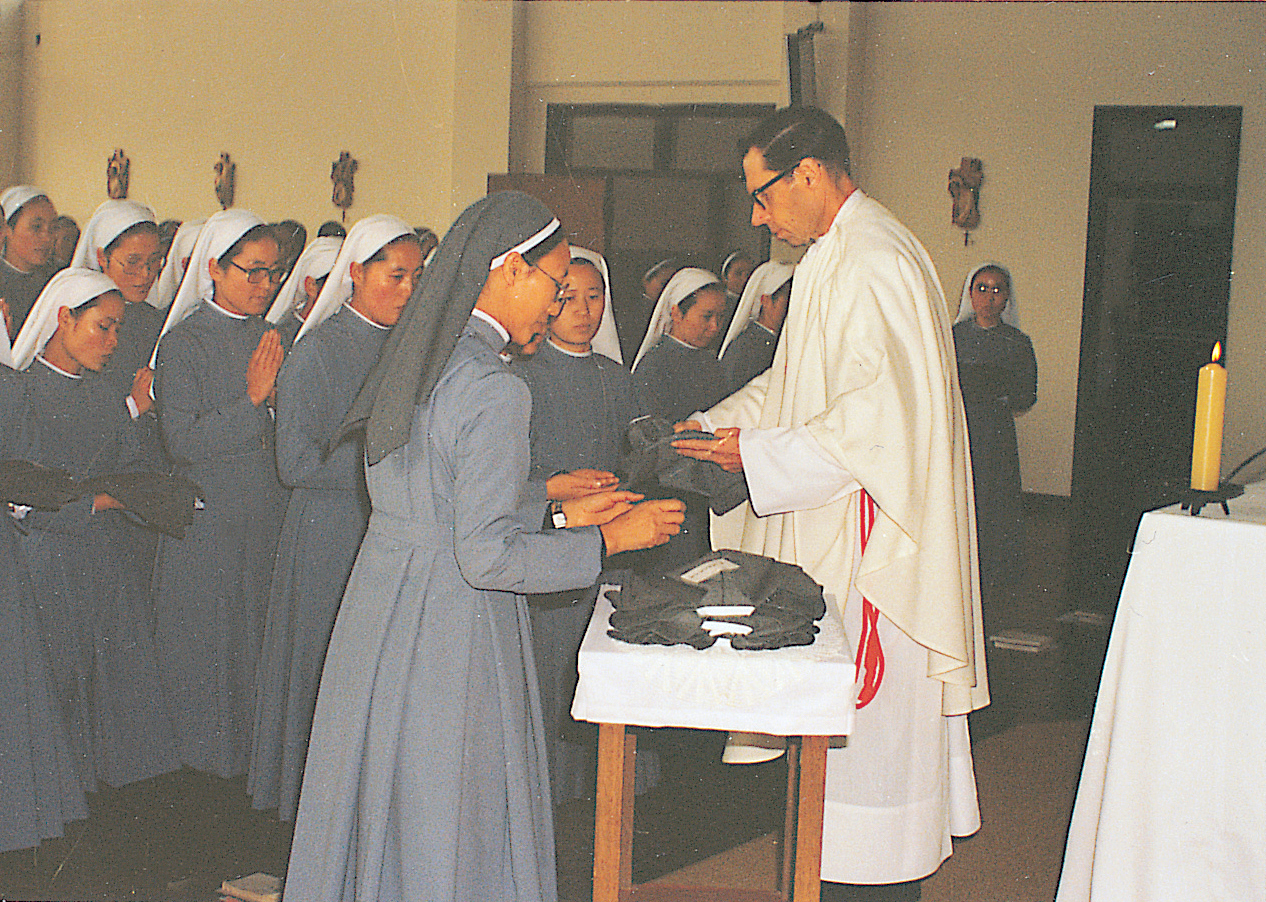
Through the invitation of ecclesiastical and government authorities, the Sisters of Mary have expanded to the Philippines, Mexico, Guatemala, Brazil, Honduras and Tanzania. They are “contemplatives in action”. That is, they strive to unite the vocations of Martha and Mary. Their active life is balanced by three hours of daily prayer and contemplation.
THE BROTHERS OF CHRIST
Father Al started the Brothers of Christ as a group of male volunteers on May 10, 1981 and later formed them into a religious community to help him in his ministry to the destitute, physically and mentally handicapped and homeless men in Seoul, Korea by providing them shelter and training. They render various forms of assistance and services that include direct evangelization and values formation, livelihood trainings, self-help projects, recreational facilities and retreat activities
EXPANSION OF HIS WORKS OF CHARITY TO THE PHILIPPINES AND MEXICO
In 1983, he was conferred the Ramon Magsaysay Award for his work for the poor and the youth. He received his award in Manila where he met Jaime Cardinal Sin, Archbishop of Manila, who persuaded Fr. Al to extend his work for the poor in Korea to the Philippines.
A new chapter in his mission and charity work began when he set up Boystown and Girlstown in Bacood, Sta. Mesa, Manila. He also took over responsibility of the charity wards of the Quezon Institute for tuberculosis patients.
He went around the slums of Manila such as in “Smokey Mountain” in Tondo talking to the children with the intention of enrolling them in the Boystown and Girlstown.
At the request of Ricardo Cardinal Vidal, Archbishop of Cebu, he also started Boystown and Girlstown in Talisay, Cebu in 1990.
In October 1989, Msgr. Al was diagnosed with Amyotrophic Lateral Sclerosis (ALS) and was given three years to live. Despite this, he considered his illness as a grace from God.
In September 1990, after several months of reflection and discernment, he accepted Bishop Jose Maria Hernandez’s invitation to open the Boystown and Girlstown in Chalco, Mexico. Although already ailing at that time, Msgr. Al left Manila for Mexico and with the help of three sisters founded the Mexican mission.
